URBAN ARCH Response to COVID-19
In this edition of the URBAN ARCH Newsletter, we highlight how the URBAN ARCH studies adapted to the restrictions put in place in response to the COVID-19 pandemic and the associated implications on study operations. Three months have passed since the World Health Organization (WHO) declared the transmission of the novel coronavirus (COVID-19) a global pandemic (WHO, 2020). Although each cohort has been affected by the same virus, differences in government regulations, protocols, and site accessibility have led to a variety of adaptations.
URBAN ARCH Research Continues
Although COVID-19 has created disruptions for each cohort, work has continued to move the research studies forward. In Russia, studies have been able to continue. For St PETER, some participants have continued to come for in-person study visits, while for others, the team obtained IRB permission to conduct the assessment via phone. In the case of TMAO and ACME, ancillary studies of St PETER, samples continue to be collected. The UH3 (PETER PAIN) study, requiring experimental pain testing and medication dispensing, has not yet begun enrollment; recruitment has been pushed back until restrictions are lifted. St. Petersburg study staff at Pavlov State Medical University are in the office a limited number of days, but are still able to conduct in-person visits two days a week. Only one patient may be in the clinic at a time, and disinfection occurs between patient visits. All staff wear masks and gloves, both while working with patients and performing administrative work. All participants are required to wear a mask and gloves and each participant receives a temperature check on arrival. Please see the photos below to observe how the local Russia site staff are taking precautions in the office.
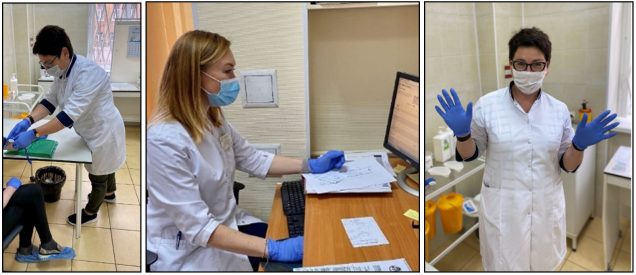
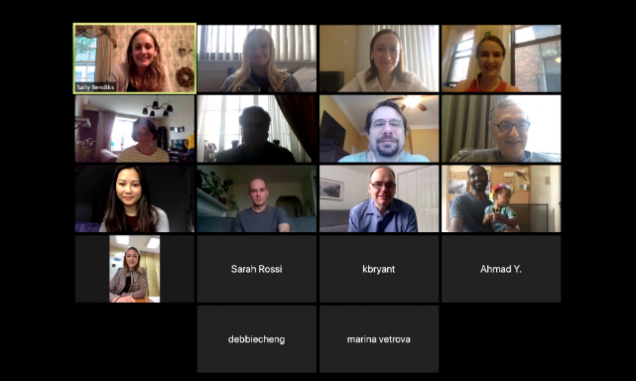
In Boston, 4F recruitment is currently suspended due to institutional restrictions on in-person research. The study has been able to proceed with phone visits, however the in-person annual visits have been restructured to consist of two parts. The first part is conducted over the phone or Zoom video conferencing and encompasses all sections of the assessment that are able to be asked remotely. The second part of the assessment will be conducted once the team is able to resume in-person research activity and will encompass all sections of the assessment that must be completed in person, such as balance, grip strength, and chair stand tests. Additionally, the Boston ARCH qualitative study has been restructured so that the interview and focus group formats can effectively be conducted remotely.
Due to the COVID-19 pandemic and the Public Health response in Uganda, all study activities were paused in March 2020, following directives from Uganda President Museveni restricting all private and public transportation throughout the country. Only staff who lived close to the offices (by walking or bicycle) were able to come into the office during the allowed hours of movement in the day.
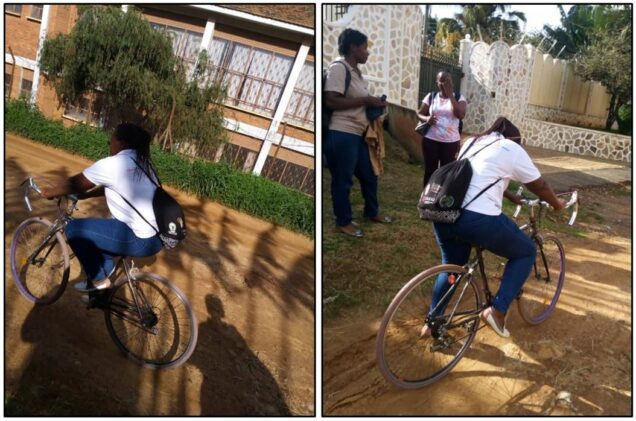
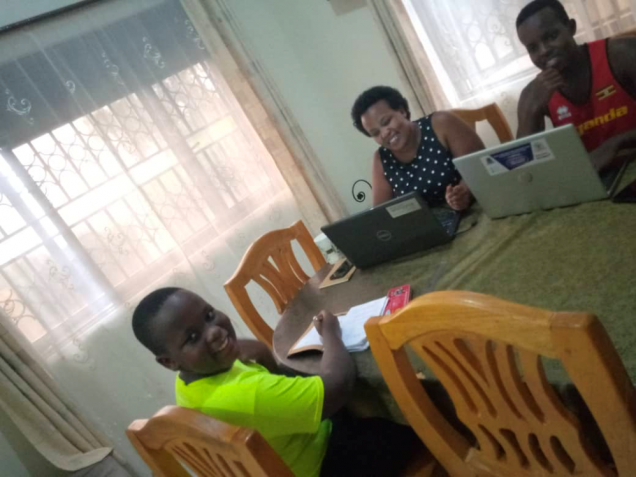
These restrictions on movement were eased on May 26th for private cars and on June 4th for public transportation to operate at half capacity. Transportation costs for study participants to come for study visits have doubled with public transportation operating at half capacity.
Government Response to the Pandemic
Each government has dealt with the pandemic differently. The Russian border to China closed on January 30, and Russia temporarily restricted incoming flights and trains from China shortly after. Due to the low early prevalence of COVID-19 in Russia, few other restrictions went into place after this initial action. St. Petersburg reported its first case of COVID-19 on March 4 and later that month (March 28), restrictions on leaving personal residences as well as utilization of public transit were enacted in conjunction with the restrictions imposed by the federal government. While the restrictions were initially planned to last only until April 14, they continued to be pushed back and are set to be lifted in St. Petersburg on July 14. As of June 25, 2020, St Petersburg reported 23071 confirmed cases of COVID-19 and 961 deaths. Based on results of a population study conducted by European University, 5.7% of citizens of St. Petersburg had COVID-19 antibodies (about 200 000 people).
Due to the stay at home order in Massachusetts, all staff in the Boston ARCH cohort are working remotely. Restrictions on returning to the workplace will be lifted in phases. Massachusetts is currently in phase 2 out of 4, but the trajectory for when research activity will return to “normal” is still unclear.
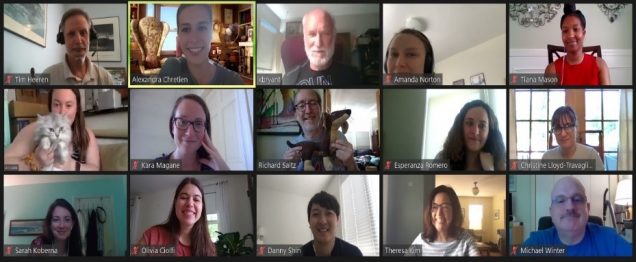
The Ugandan government’s response starting in March, 2020 included shutting down of all borders, except for transportation of essential goods, supplies, and services. Testing commenced with individuals who had left the country within the first two weeks of March, and continued with testing all on arrival at Uganda borders via air or ground transportation. People were initially asked to self-quarantine upon arrival for 14 days, but subsequently, individuals were quarantined in government-identified isolation centers. Contact tracing has been in effect since the first positive case with isolation centers set up at the border towns. As of June 23, 2020, Uganda has 797 confirmed cases of COVID-19 and 0 deaths with truck drivers making up the majority of the COVID-19 positive tests.
COVID-19 Related Supplements
All cohorts submitted urgent competitive supplemental revisions following the Notice of Special Interested issued by NIAAA (NOT-AA-20-11).
St PETER’s COVID supplement aims to 1) describe and estimate prevalence of COVID-19 infection in the St PETER cohort; 2) determine the association between COVID-19 infection and systemic inflammation as measured by biomarkers (e.g. IL-6 levels); and 3) determine the association between COVID-19 infection and metabolic profiles.
The overarching goal of the Boston ARCH proposed supplement is to assess the impact of the COVID-19 pandemic and the effects of physical distancing and other mitigation strategies on substance use among people living with HIV.
The Uganda cohort proposed to look at changes in alcohol use, ART levels, and viral suppression before, during, and after stay-home restrictions in people with HIV in Uganda and Boston and the association of alcohol use and changes in alcohol use with these outcomes in the same cohorts.
The Admin Core would like to offer a heartfelt thank you to all of our clinicians and medical professionals who continue to serve vulnerable populations during this unprecedented time, and another thank you to our staff, investigators, and collaborators who are staying home and flattening the curve. We look forward to continuing to collaborate virtually and resuming our domestic and international research activities in full as permitted.
Citations:
World Health Organization. “WHO director general’s opening remarks at the media briefing on COVID-19”. https://www.who.int/dg/speeches/detail/who-director-general-s-opening-remarks-at-the-media-briefing-on-covid-19—11-march-2020. March 11, 2020.